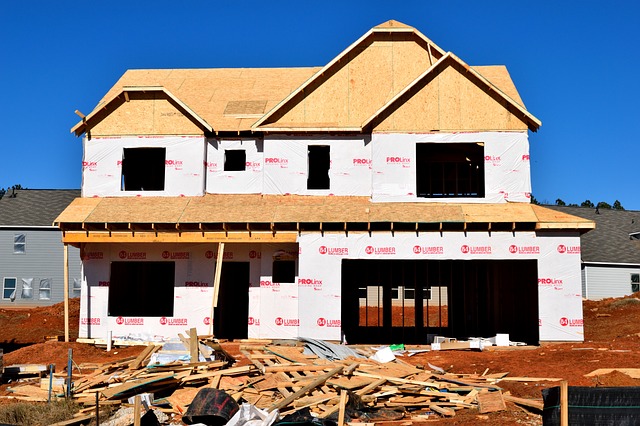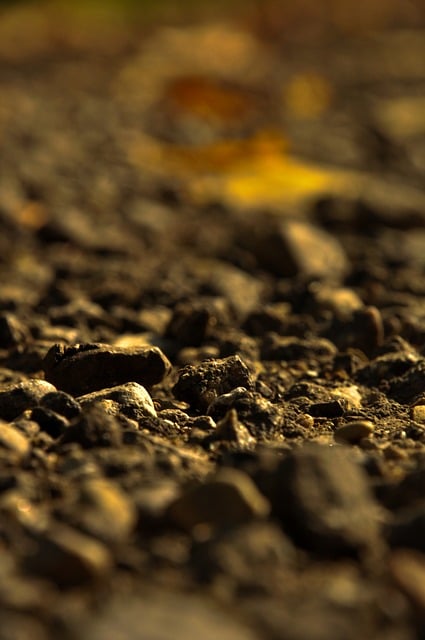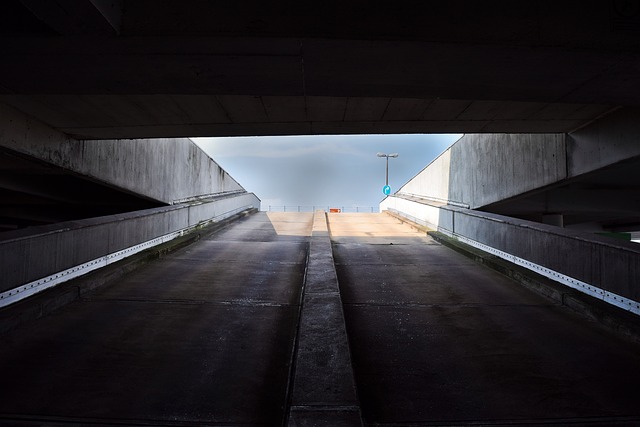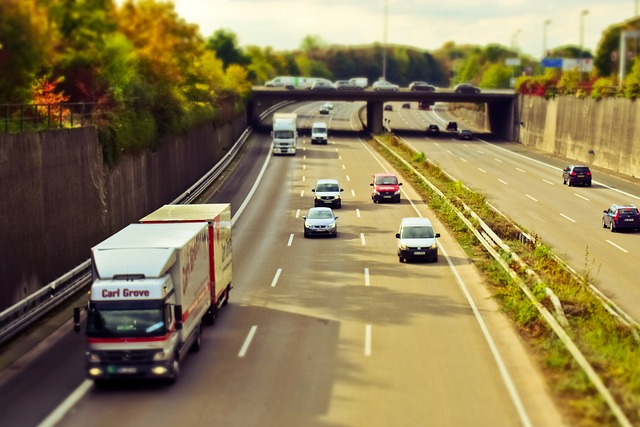When choosing a sustainable and eco-friendly driveway, opt for permeable paving systems that support water recharge by allowing rainwater to percolate through, thereby reducing runoff and conserving water. These systems can be made from recycled materials like glass or bricks, offering both environmental benefits and aesthetic appeal. For additional sustainability, concrete pavers with a high percentage of recycled content are an excellent choice, as they conserve resources, support heavy vehicle traffic, and offer design versatility. Using locally sourced materials minimizes transportation emissions and carbon footprint. Throughout the driveway's lifecycle, from production to maintenance, it's crucial to consider the environmental impact. Eco-conscious choices, such as integrating a rain garden to filter out pollutants, contribute to biodiversity and protect water quality. Strategic placement for optimal sunlight can aid in snow melting and reduce heating needs. Employing recycled plastic or steel for edging enhances water management by minimizing runoff. Sustainable practices also include the use of solar-powered lighting and native plants, which promote biodiversity, conserve water, and minimize maintenance. Homeowners who implement these sustainable driveway solutions will enjoy a functional, attractive space that positively contributes to environmental health.
Exploring sustainable and eco-friendly driveway paving options is a crucial step towards integrating environmental responsibility into home construction and maintenance. This article delves into the various materials available for eco-conscious driveways, offering a guide to select the most sustainable choices. It also outlines best practices for installation to minimize ecological footprints. Understanding the lifecycle and impact of your driveway’s design is vital for long-term environmental stewardship. Additionally, we provide practical tips for maintaining your green driveway to ensure its sustainability endures. With a focus on ‘driveway’ as a focal point of this discussion, readers will gain valuable insights into making informed decisions that benefit both their property and the planet.
- Evaluating Eco-Friendly Driveway Materials: A Guide to Sustainable Options
- Installation Best Practices for an Environmentally Conscious Driveway
- The Lifecycle and Environmental Impact of Your Driveway's Design
- Maintaining Your Green Driveway: Tips for Long-Term Sustainability
Evaluating Eco-Friendly Driveway Materials: A Guide to Sustainable Options

When considering sustainable and eco-friendly options for your driveway, it’s crucial to evaluate the environmental impact of various materials. Traditional asphalt and concrete can be resource-intensive and may contribute to carbon emissions through their production and maintenance. In contrast, permeable paving options allow water to filter through, reducing runoff and supporting groundwater recharge. These systems often incorporate eco-conscious materials such as recycled glass or bricks, which can enhance the sustainability of your driveway while providing aesthetic appeal. Another sustainable choice is concrete pavers made with a higher percentage of recycled content, which not only conserves natural resources but also offers versatility in design and durability for vehicular traffic. Additionally, the use of locally sourced materials can decrease transportation emissions associated with their delivery, further minimizing the driveway’s environmental footprint. When selecting eco-friendly driveway materials, it’s wise to consider the entire lifecycle of the product, from manufacturing to installation and maintenance, ensuring that your choice aligns with your commitment to a greener environment.
Installation Best Practices for an Environmentally Conscious Driveway

When constructing a sustainable and eco-friendly driveway, it’s crucial to consider the materials and methods used for installation to minimize environmental impact. Opting for permeable paving options allows rainwater to seep through the driveway and into the ground, reducing runoff and recharging local aquifers. Additionally, using locally sourced, recycled, or low-impact materials like concrete pavers, brick, or natural stone supports local economies and decreases transportation emissions. Proper site preparation is also essential; this includes ensuring good drainage and avoiding disturbance to existing vegetation where possible, thus preserving biodiversity and preventing soil erosion.
In terms of installation, it’s important to plan the driveway layout for optimal sunlight exposure, which can help snow melt faster in winter and reduce the need for heating during colder months. Edging the driveway with recycled plastic or steel rather than concrete not only saves resources but also promotes better water management by preventing runoff. Furthermore, incorporating a rain garden at the end of the driveway can capture sediments and pollutants from driveway runoff before it enters water bodies, significantly enhancing water quality. By adhering to these best practices, homeowners can contribute to environmental sustainability while maintaining functional and attractive driveway spaces.
The Lifecycle and Environmental Impact of Your Driveway's Design

When designing a sustainable and eco-friendly driveway, it’s crucial to consider the entire lifecycle of the materials and their environmental impact. The choice of paving materials significantly influences the ecological footprint of a driveway. Traditional asphalt or concrete driveways contribute to resource depletion due to their nonrenewable origins and energy-intensive production processes. In contrast, eco-friendly alternatives like permeable pavers, recycled materials, or sustainable natural stones can mitigate these effects. Permeable pavers, for instance, allow for rainwater to seep through, reducing runoff and supporting groundwater recharge. Additionally, incorporating indigenous plants into the driveway design not only enhances its aesthetic appeal but also contributes to biodiversity and reduces the need for watering and maintenance. By opting for materials with lower environmental impacts and designing for longevity, a driveway can serve its purpose without compromising the health of local ecosystems or contributing to resource scarcity. Integrating green technologies such as solar-powered lights for illumination further underscores the commitment to sustainability in driveway design.
Maintaining Your Green Driveway: Tips for Long-Term Sustainability

When installing a sustainable and eco-friendly driveway, the initial choice of materials is crucial for its long-term sustainability. Options like permeable paving allow rainwater to seep through, reducing runoff and supporting groundwater recharge. To further maintain your green driveway, regular upkeep is necessary. Sweeping debris frequently prevents clogging in permeable areas, ensuring proper drainage. Additionally, using eco-friendly deicers during winter months is vital to avoid harming local ecosystems. Properly maintaining your driveway with these practices not only supports environmental health but also extends the lifespan of your paving solution.
Engaging in sustainable practices doesn’t end at installation; it’s an ongoing commitment. For instance, choosing native plants for any landscaping around the driveway minimizes water usage and supports local biodiversity. Furthermore, ensuring that any maintenance, such as sealing or repairing the driveway, uses environmentally friendly materials and methods contributes to its overall sustainability. By adhering to these practices, your eco-friendly driveway can serve as a model for sustainable living and contribute positively to the health of the surrounding environment.
When considering the environmental footprint of your property, eco-friendly and sustainable driveway paving emerges as a prudent choice. This article has explored various aspects of green driveway options, from evaluating materials to understanding their lifecycle impacts. Homeowners looking to install or upgrade their driveways can now make informed decisions that align with environmental consciousness. By adhering to best practices during installation and committing to long-term maintenance, a sustainable driveway not only enhances your property’s appeal but also contributes positively to the health of our planet. Embracing these eco-friendly solutions for your driveway is a step towards a greener future, demonstrating that even the most practical of spaces can be an integral part of broader environmental efforts.
